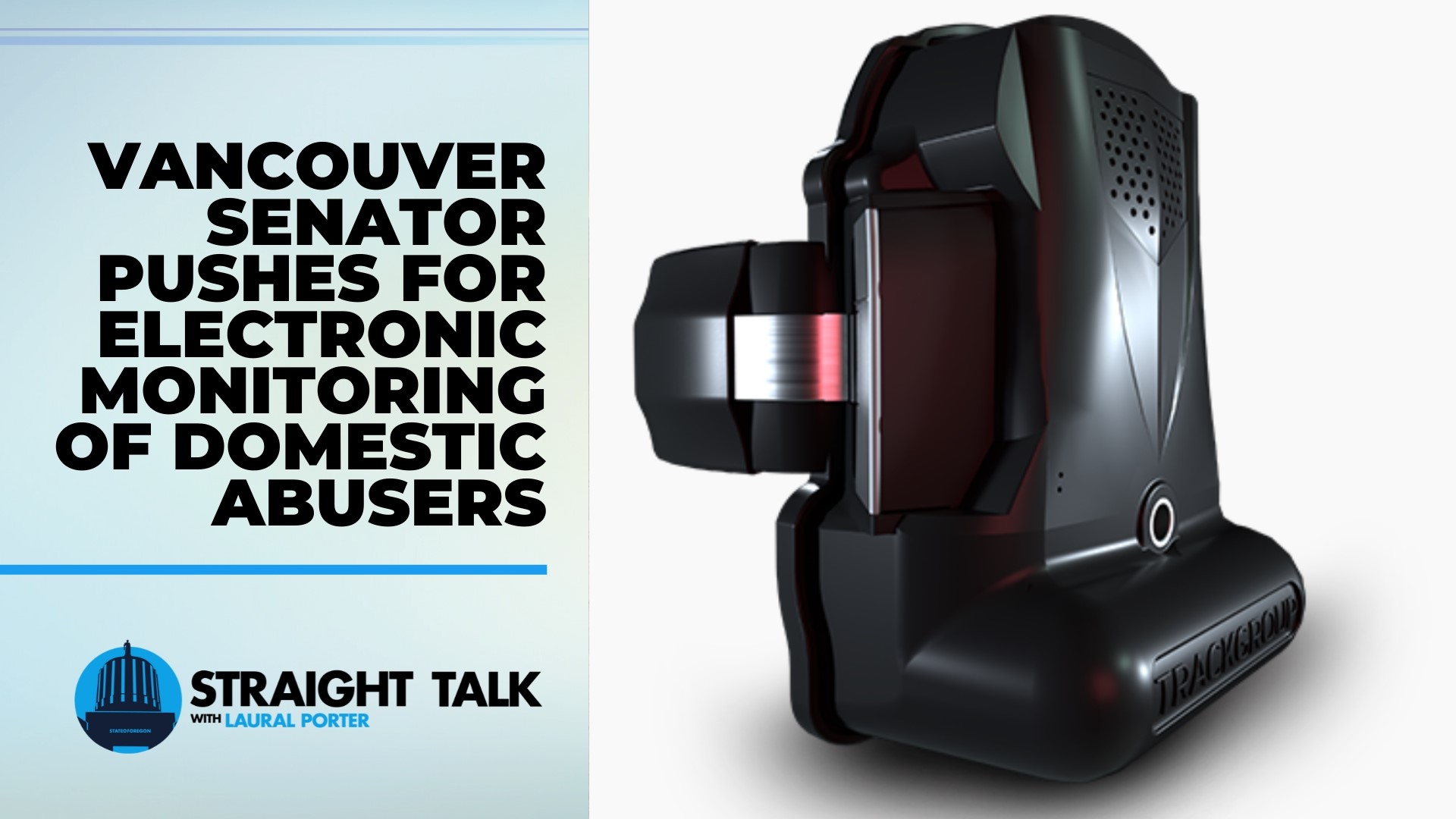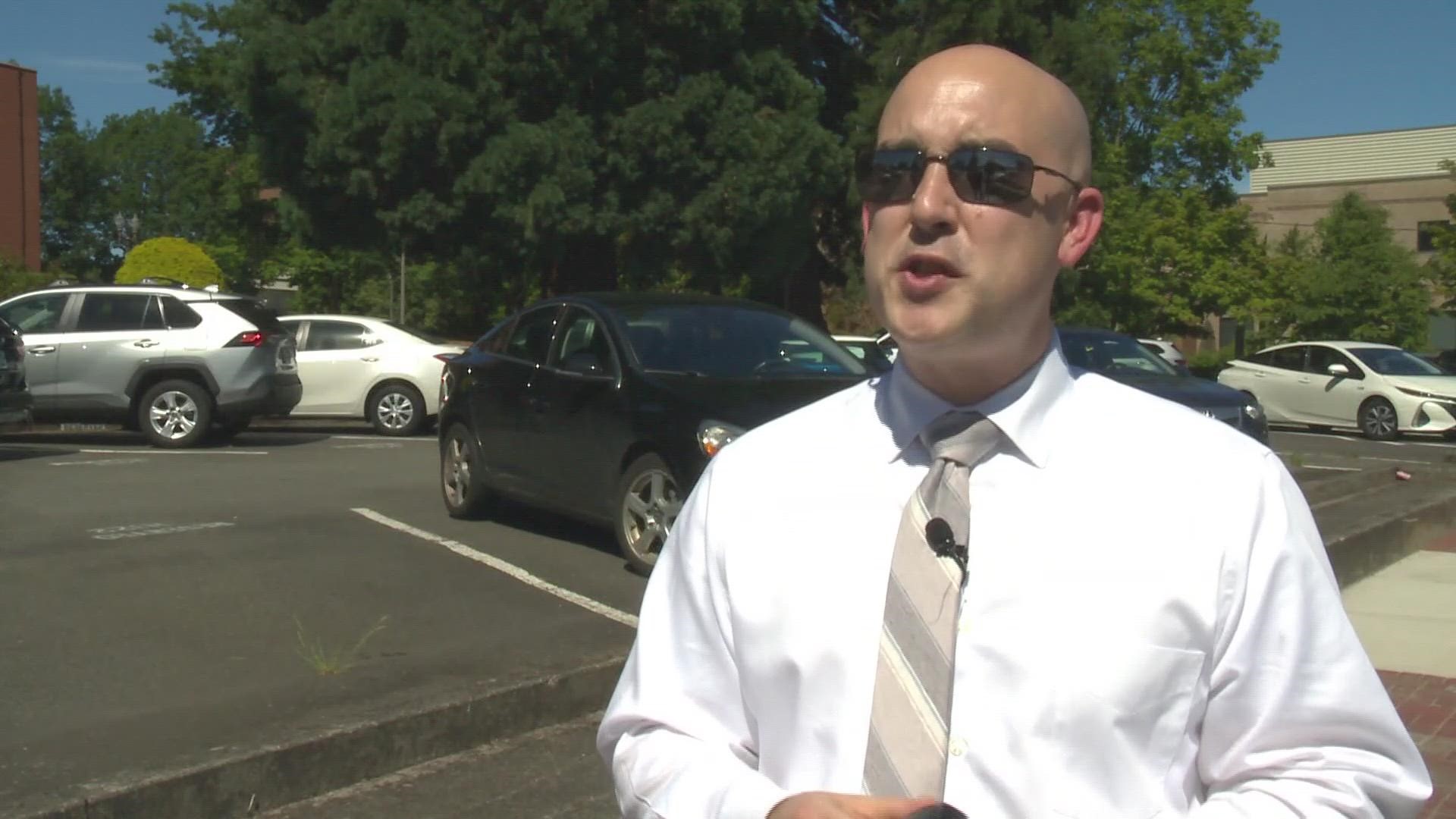VANCOUVER, Wash. — It's been more than two years since Washington State enacted the "Tiffany Hill Act," named in memory of a young mother gunned down by her estranged abusive husband.
The law allows courts to order offenders to wear a GPS ankle bracelet which would be monitored and linked to an app on the victim's phone, alerting them when their abuser was nearby. State Sen. Lynda Wilson (R-Vancouver), one of the authors of the law, said the technology could have saved Hill's life.
The bill was signed into law in 2020, but few Washington counties are utilizing the monitoring technology. Wilson has been advocating for wider adoption within the state and for other states to adopt their own versions of the law.
Who was Tiffany Hill?
Tiffany Hill was a 35-year old mother of three, a former Marine sergeant, who had recently moved to Vancouver with her husband Keland. In September of 2019, she called police when Keland assaulted her and gave her a concussion.
According to Vancouver Police Sergeant Tanya Wollstein, who investigated the case, Keland violated numerous "no contact" orders, stalked Tiffany, and even placed a tracking device on her car. He was eventually arrested again, and Tiffany told the court she feared for her life. Keland's bail was raised, but he was still able to post bail.
"Within five days of his release, he obtained a stolen firearm, went to his children's school and killed Tiffany, shot her mother, with their children in the back of the car, all on his youngest daughter's birthday," Wollstein said.
Wilson believes monitoring technology would have saved Hill's life
At the time of Hill's murder, Wilson had been working for years on legislation to give domestic violence victims better protection from their abusers, but she had not yet succeeded in getting the bill passed.
"It broke my heart," she said. "(Hill's) situation is exactly what this technology would have helped her with. Many of us believe, had the technology been available, she would have used it to protect herself and would be alive today."
Hill's husband was in the school parking lot for 20 minutes before he killed her. If the monitoring technology had been in use, Hill would have received an alert that her estranged husband had entered what's called an "exclusion zone," as specified by a restraining order from the court. Law enforcement would have also been notified.
"She would have been alerted. She would have had 20 minutes, as soon as he showed up there at the school," Wilson said. "So I feel quite confident, had she had it, yes, she would be alive."
With support from Wollstein and other members of law enforcement, along with Clark County Court administrator Bryan Farrell and a group of Hill's friends, Wilson was finally able to get her bill passed. Washington Governor Jay Inslee signed the Tiffany Hill Act into law on April 2, 2020.
"It was a village, truly. It was bipartisan. It was unanimous. And it really was the work of the entire community," Wilson said.
Court administrator: "It's just a very valuable program"
Wilson, Farrell, and Wollstein were guests on this week’s episode of Straight Talk to explain how the electronic monitoring program works, and to convince other counties to follow Clark County’s lead.
Clark County Court Administrator Bryan Farrell helped test and implement the technology. He said Clark County monitors an average 12 clients at any given time. He said the technology is invaluable to domestic violence victims.
In this video, Farrell and Wollstein demonstrate how it works:
"For somebody who has already been traumatized and is going through the court process, to have this added security, this added tool that will help them sleep at night, to help them know their children are safe at their day care or school is just so important." Farrell said. "I can't say that enough. It's just a very valuable program."
Few counties utilizing the technology
The law makes the technology an available tool throughout the state, but very few counties have begun to use it.
In November 2021, KGW reached out to all 39 Washington counties to ask if prosecuting attorneys and courts were using the tracking devices, and how many times they'd ordered one to be used.
Fewer than half responded, and of those that did response, only Clark County, where the Tiffany Hill Law originated, was using the technology. Wilson said she believes the other counties simply don't have the information.
"I really believe it's because of the lack of knowledge that's it's even out there," she said. "And it's not for lack of trying."
Earlier this year, Wilson said she was able to get nearly $2 million in funding passed to help jurisdictions pay for the electronic monitoring "so money won't be a hindrance to getting this technology used."
She said she's also has heard from officials in who want to know how she got the legislation passed. Wilson, Farrell and Wollstein are more than happy to share information to help other counties and states build their own domestic violence offender monitoring programs.
"Definitely, reach out to us. We are happy to help," Farrell said. "We are happy to collaborate with anybody who wants to know about it, to share copies of our policies and procedures and how we built the program. We are happy to guide anybody through that."
"Domestic violence is everywhere"
Wollstein said 20% to 40% of police calls on any given day in Vancouver are related to domestic violence, totaling about 5,000 cases each year.
"Domestic violence affects every demographic," she said. "It doesn't matter where you are from. It doesn't matter how much money you have. It's everywhere."
Wollstein has been a detective in the domestic violence unit and on patrol. She said one of the most frustrating things for her and her fellow officers is when they know a victim is in danger but they don't know where the abuser is. That makes the monitoring technology a game-changer.
"With these high-risk victims, you have an actual tool that will lead you right to the offender," she said. "And you can keep her safe and you can hold him accountable and avoid situations like Tiffany Hill."
Wilson witnessed domestic violence as a child, and she said she knows the trauma it inflicts can last a lifetime, and she wants other victims to be able to hear her message.
"I want to say you are not alone out there. There are a lot of people who want to help you," she said. "This particular program gives you a sense of control. You don't have to keep looking over your shoulder. And I think that's why this is so important, and I am really happy Clark County is the gold standard."
Where to learn more
If you or someone you know is affected by domestic violence, help is available.
- National Domestic Violence Hotline: 800-799-7233
- Clark County SafeChoice Domestic Violence Program
Local: 360-695-0501 (accepts collect calls)
Toll-free: 800-695-0167
For information on how to implement an electronic monitoring program like the one in Clark County, contact Sergeant Tanya Wollstein at Tanya.Wollstein@cityofvancouver.us or 360-624-0518, or Clark County Court Administrator Bryan Farrell at Bryan.Farrell@clark.wa.gov.
State Senator Lynda Wilson can be reached at Lynda.Wilson@leg.wa.gov.
The firm that installs, monitors and manages the equipment is 2 Watch Monitoring in Vancouver and can be reached at 564-888-2977.
Straight Talk airs Friday at 7pm, Saturday at 9pm, and Sunday at 7pm.
Straight Talk is also available as a podcast.


